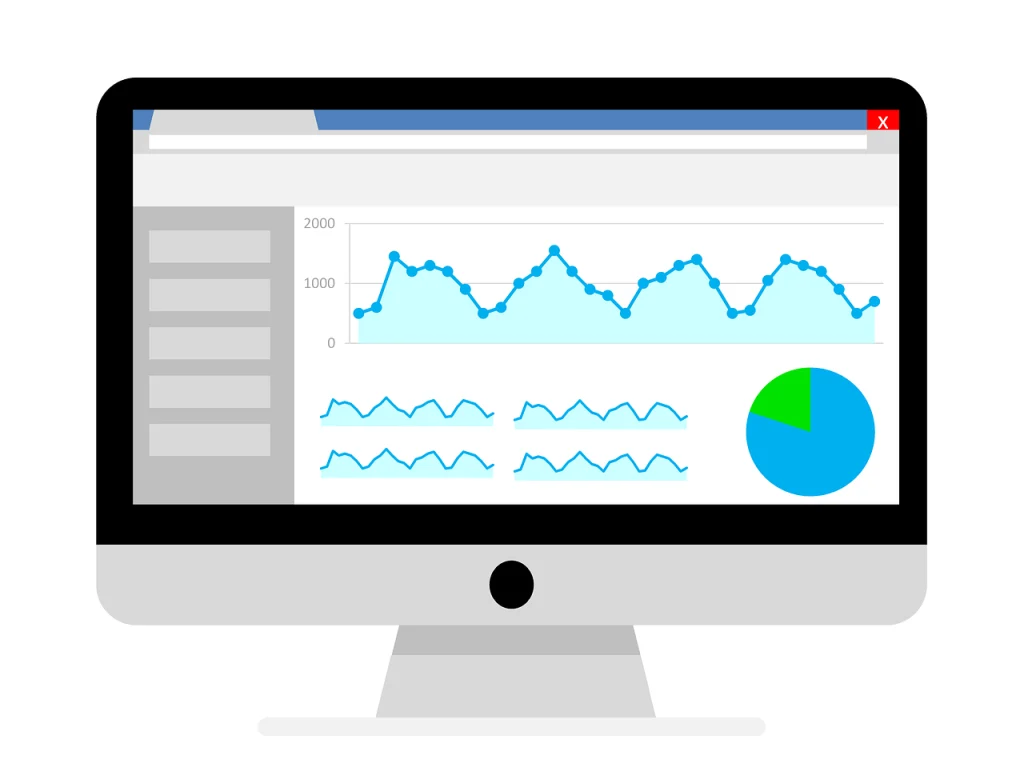Best 5 SEO Dashboards — Overview
| SEO Dashboard | The Best Bits | Starting Price | |
|---|---|---|---|
| DashThis | Highly customisable White-label reports Supports multi-channel integration |
$42/month | Get Started |
| Ranktracker.com | Full SEO toolset Rank tracking and reporting Competitor analysis |
$16/month | Get Started |
| SEMrush | Comprehensive SEO platform Advanced reporting tools Competitor analysis |
$119.95/month | Get Started |
| SE Ranking | Cost-effective SEO dashboard Website audit tools Backlink monitoring |
$31/month | Get Started |
| Whatagraph | Highly visual reports Multi-channel data integration White-label capabilities |
$199/month | Get Started |
1. DashThis
DashThis is a popular and versatile SEO dashboard tool designed for marketers, agencies, and businesses that need to track and visualise SEO performance across multiple channels. What makes DashThis stand out is its ease of use, sleek design, and ability to automate the reporting process. It’s not solely an SEO tool, but it integrates with various platforms, including Google Analytics and SEM tools, making it a perfect solution for SEO reporting alongside other digital marketing efforts.
DashThis supports integration with over 34 digital marketing tools, allowing users to pull in SEO data and combine it with other performance metrics. This makes it easy to create centralised dashboards, giving a full view of SEO and marketing campaigns in one place. DashThis also offers white-label capabilities, making it ideal for agencies that need to customise reports with their own branding.
Pros
- Highly customisable white-label reports, ideal for agencies.
- Supports integration with 34+ platforms, including Google Analytics.
- Automated report delivery saves time and effort.
- Clear, visually appealing dashboards that are easy to understand.
Cons
- Primarily a reporting tool, with fewer SEO-specific features.
- Higher pricing for smaller businesses.
2. Ranktracker.com
Ranktracker.com is an all-in-one SEO dashboard that combines accurate rank tracking with a variety of tools such as keyword research, competitor analysis, and reporting. This platform is designed for businesses and agencies looking for a full-featured SEO tool that can track performance metrics and manage SEO campaigns from one place.
Ranktracker provides daily updates on keyword performance and enables users to monitor their rankings on search engines like Google, Bing, and more. It also includes robust competitor analysis tools, which allow users to compare their rankings against competitors, identify gaps, and adjust their strategies accordingly.
Pros
- Includes rank tracking, keyword research, and competitor analysis.
- Daily ranking updates across search engines.
- Simple reporting interface with customisable dashboards.
Cons
- Some features are limited to higher-tier plans.
- Can be overwhelming for beginners due to advanced tools.
3. SEMrush
SEMrush is one of the most widely recognised SEO dashboards, offering a suite of tools that include rank tracking, keyword research, site audits, and backlink analysis. The platform goes beyond simple SEO dashboards by providing detailed insights into competitor performance and enabling users to track SERP features like snippets and local packs.
SEMrush allows users to track SEO progress across multiple regions and devices, making it a comprehensive solution for global and local SEO campaigns. It is ideal for businesses and agencies that need advanced reporting and analysis.
Pros
- Comprehensive SEO suite with rank tracking, keyword research, and audits.
- Tracks SERP features like snippets and local packs.
- Competitor analysis tools to compare SEO performance.
Cons
- More expensive than other SEO dashboards.
- Advanced tools may be overwhelming for beginners.
4. SE Ranking
SE Ranking is a highly affordable SEO dashboard that offers essential SEO tools for businesses and agencies looking for a cost-effective solution. SE Ranking provides a wide range of tools, including rank tracking, website audits, keyword research, and backlink monitoring. It also features an easy-to-use interface, making it suitable for both beginners and professionals.
In addition to tracking keyword rankings, SE Ranking helps users audit their websites to ensure that they meet SEO best practices, making it a well-rounded option for those looking to improve their site’s performance.
Pros
- Affordable pricing plans for businesses of all sizes.
- Website audit tools help improve SEO performance.
- Backlink monitoring and keyword research tools included.
Cons
- Advanced features limited to higher plans.
- Less comprehensive competitor analysis than SEMrush.
5. Whatagraph
Whatagraph is a visual, highly customisable SEO dashboard that excels in creating detailed, easy-to-read reports. It is designed for agencies and marketing teams who want to deliver stunning reports to clients by integrating data from multiple platforms, including SEO, social media, and PPC tools. Whatagraph’s intuitive drag-and-drop editor allows users to create customised reports, making it a great choice for professionals who need to deliver regular performance updates.
One of the standout features of Whatagraph is its **multi-channel reporting** capabilities, enabling users to compile data from various platforms such as Google Analytics, SEMrush, and Facebook Ads into a single dashboard. Whatagraph also supports **white-labeling**, making it easy for agencies to brand reports with their own logos and colours, ensuring consistent, professional client presentations.
Pros
- Highly visual reports with drag-and-drop customisation.
- Integrates with multiple platforms for comprehensive SEO and marketing reports.
- White-label reports for agencies.
- Easy-to-read reports designed for client presentations.
Cons
- Higher starting price compared to other SEO dashboards.
- Limited advanced SEO features for in-depth analysis.
Further reading:
— Best 5 Rank Tracker Tools
— Why Measuring Success Matters in Australia

